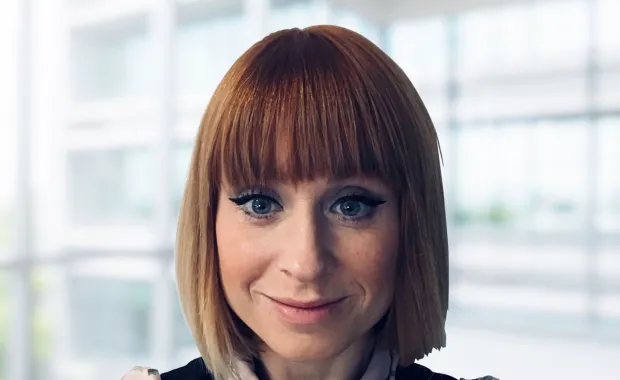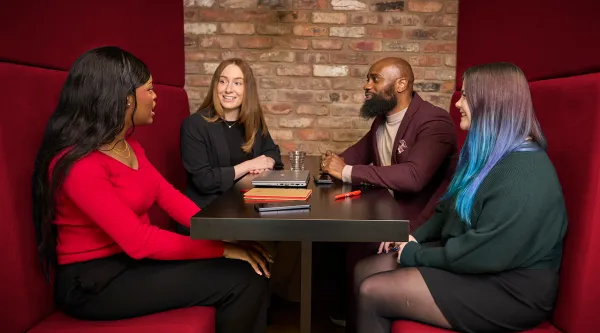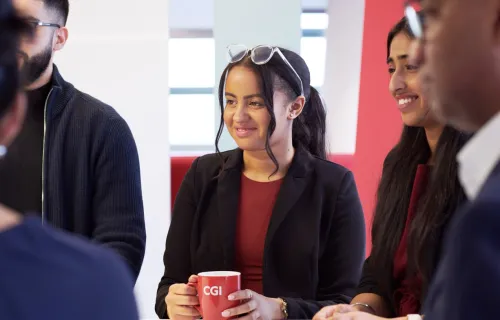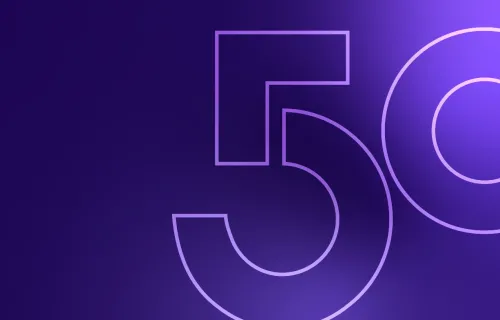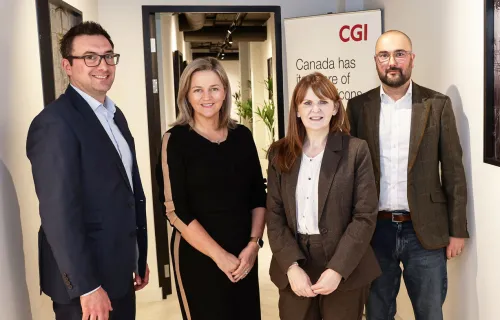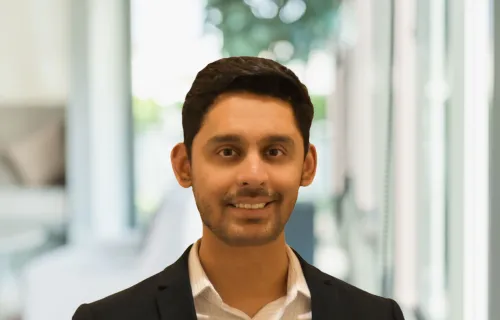CGI member Laura Milne had a fascinating and fulfilling career as a police officer, and serving the public has always been a driving motivation for her. Over the years, she became increasingly passionate about the need for change within the service. When she decided to join CGI after 15 years as a police officer, she had an incredible opportunity to help create the change she was looking for.
Interested in what led to her career change and how her work at CGI is impacting the police force today? Read her story below.
Policing is wonderfully and worryingly fascinating. I really enjoyed the pace and variety that my policing career gave me and I became fiercely passionate about the role that police play in protecting the public from harm. As my career developed, I became increasingly aware about the need for change to keep pace with the new and emerging threats to people and their safety, and actively looked for opportunities to improve policing where I could.
When I reached 15-years of service – which, in policing terms, is half of your career – I decided it was time to try to be part of the change I was looking for, and to help shape and influence the IT solutions that policing so desperately needs.
Knowing that CGI was heavily involved in supporting police work and had in fact built our successful police national database, they seemed like the right fit for me – I wasn’t wrong!
From policing, to creating police technology
I joined the Metropolitan Police as a uniformed officer in 2003, when I was 21. I spent my first four years on the frontline, responding to calls to service from the public, reporting crime, chasing criminals and supporting victims in their hour of need. From there I moved into the Criminal Investigation Department (CID) where I found my passion for investigation and safeguarding.
Policing has lots of well-established processes and procedures, but most of the IT used is out of date and not able to cope with the demands of 21st century crime. The complexity of investigation and safeguarding has been increased with the use of the internet, better communication, social media and the volumes of data now involved. Without the right tools it is almost impossible to operate effectively, and I started to feel that I couldn’t serve the people of London in the way I wanted to anymore.
CGI built and ran the police national database, an intelligent IT system through which all 55 law enforcement agencies across the country share data. I understood that they had solved some enormous policing challenges through their designs, so I jumped at the chance to join the company and embark on a new career path that would still keep me involved with the police community.
I was excited to be a part of the innovations that were going to make my ex-colleagues’ lives easier. Moreover, they would enable them to better serve the public, which to me was the most motivating aspect of all.
CGI always delivers
One of the things that really frustrated me as a police officer was being promised a new piece of IT that would solve some of your problems, but inevitably ended up being delivered late and not integrated into our business and failed to deliver on our requirements or our expectations.
As an ex-police officer, I wasn’t prepared to go back to my old organisation and sell them a pipedream, so CGI’s sharp focus on delivery was a huge draw. 95% of projects here are delivered on time and on budget - being with a company that could be trusted to do what was required of them was really important to me.
Another part of CGI’s appeal was its inclusive culture, especially the strong, female leadership. I came from an organisation led by a strong woman - Cressida Dick - and that mattered to me. I saw that being a woman wasn’t a barrier to success at CGI either.
The incomparable value of my time in policing
Of course, policing and IT are completely different worlds. Policing clients generally aren’t concerned about the IT itself, but they do care about what the IT can and cannot deliver.
To that end, one of the strongest skills I’ve carried over from policing is my ability to talk to anyone, at any time, about anything. I'm much more of a listener than a speaker. Policing really honed my ability to work with a whole range of people, ask open questions, and see things from different perspectives. You meet every walk of human life possible as a police officer, from the good and very bad, to the vulnerable, or exceptionally bright and well-connected.
As a police officer, I had to deal with some very tough, emotional situations and it taught me how to work effectively in difficult environments. I learnt how to problem-solve very well too, and adapt to what’s in front of me. No two crimes are ever the same and as a police officer, you have to adapt and consider the best course of action for each one.
I apply all of these skills constantly at CGI, and I think my work today benefits enormously from everything I learned in my policing days. When I’m involved in a large-scale, complex IT project for example, things can and do go wrong, and what is most important to clients is having an upfront and honest conversation to reach a resolution as quickly as possible. Working together to overcome challenges is what policing does best.
My work allows me to continue to impact policing in positive ways
One of the reasons I decided to switch careers was to help influence and implement change from the outside and to support improved safeguarding that protects our communities from harm. Since I've been here, I’ve been involved in transformation programmes that have led to such positive change, which is just phenomenal.
I currently lead the automation team at CGI, a role I’m really proud of as I think automation is the future of policing. The police are now looking at how technology can make them more efficient and effective, so the work I’m doing is removing a lot of administrative work from police officers and staff and is enabling them to focus on actually being out there supporting victims and witnesses, gathering evidence, arresting people as well as making the critical decisions that we rely on them to make.
My first CGI project was related to modern slavery. Currently, I’m working on a domestic abuse project, improving data flow between civil court and policing with regards to non-molestation orders. I worked in domestic abuse for at least two years and understand the difficulties and delays caused when this type of order is not shared with policing.
My experience and expertise in that area has really helped us to move this project forward. I understand what is important to share between civil court and policing, and what the impact of not sharing has on not only the policing response to victims, but also on the victims themselves who require support, guidance and protection.
CGI is a great company to diversify your career with
The world is your oyster when you come here. Whichever direction you want to go, CGI will support you. Everyone is given equal opportunity to develop themselves, go on courses, and access online learning resources for everything from soft to hard skills training.
I have grown phenomenally in the last three years. I think I'm unrecognisable from the person I was when I first came here. At CGI, you feel completely supported by your peers. I didn't know a lot about IT when I joined, but everyone constantly reminded me, “You're not here for your IT skills; you're here for your policing knowledge.”
The work I am doing now is still impacting policing and I get up every day and enjoy coming to work because I know that what I’m doing matters just as much as what I was doing when I was policing. I’m helping the police to serve the public better and that’s the most important thing in the world to me.
Interested in exploring the career opportunities available to you at CGI? Head to our careers page for job openings.
